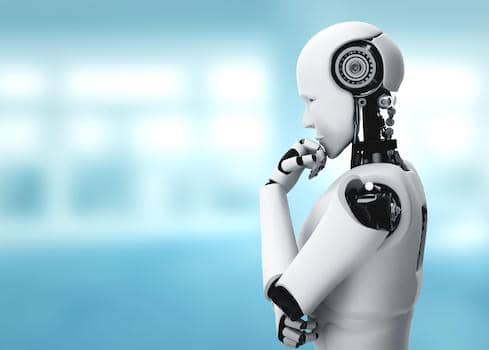Year in Review: In year two of the pandemic, enterprise data innovation pros put a focus on supply chain, ethical AI, automation, and more.

Who thought that 2021 was going to be easier than the 2020 pandemic year?
The year 2020 meant overnight pivots to working from home, workforce reorganizations, moves to the cloud, and new channels to serve customers. Plus, organizations had to hit the accelerator on digital transformation projects that they had previously planned to implement over multiple years.
Vaccines arriving for the masses in 2021 paved the way for organizations to begin to talk about a “new normal” including a return to the office for some. Yet COVID variants reminded everyone that the world was still unpredictable.
For data and analytics professionals, the year 2020 was a tricky one. What do you do when your historical data is no longer a good predictor of what will happen in the future? The pandemic changed everything from commuting patterns to consumer behavior to the technologies needed to perform your job. That was followed by a year of working on the aftermath of those changes and refining processes, technologies, and insights.
Understanding the changing patterns has made data and analytics innovations among the most important practices in the enterprise in 2021 and going forward into 2022.
From the automation to the supply chain to responsible/ethical AI, enterprises made progress in their efforts during 2021, but more work needs to be done. Maybe that’s why data innovation professionals continue to be in high demand. Here’s a look at some of the topics of 2021 in data innovation.
Automation
How to Choose Which RPA/Intelligent Automation Platform Is Right for You
A recent Omdia report empowers enterprises to make informed RPA & intelligent automation purchase decisions.
RPA Deals Heat Up Amid Faster Digital Transformation Pushes
Automation is a key component in successful digital transformations today, and several big tech vendors are adding these capabilities by acquiring RPA vendors. Tibco and Blue Prism are joining forces, for instance.
How IT Organizations Are Using Automation
IT organizations already have a lot of automation in place. Here's how they are updating their existing automations and blazing new paths.
Data Innovation Workforce
Data and Analytics Salaries Heat Up in Recovery Economy
After a year of uncertainty, the employment market for data scientists and analytics pros is heating up again.
Data Engineers in High Demand, Winning High Salaries
Get ready to pay six figures for your new data engineer. Quantitative recruiting firm Burtch Works' first salary survey reveals the salaries and trends impacting these data infrastructure experts.
The IT Skills Shortage Expands and Deepens
It's easy to identify the IT sectors experiencing a major shortage of skilled talent: all of them.
Technology
A CIO's Introduction to the Metaverse
The metaverse has arrived. Here's what CIOs need to know about it -- from business use cases, to risks, to vendor offerings from companies such as Microsoft, Nvidia, and Facebook.
AIOps: A Foundational Block of a Composable Enterprise
Inevitable change is paving the way toward flexible organizations -- from IT, to operations, and the business itself.
6 Best Practices for NLP Implementation
I’ve spent most of my career applying machine learning and natural language processing to solve problems for users and businesses. Here are some guidelines that I recommend.
Data Fabrics: What CIOs Need to Know
What is data fabric, and does every enterprise need it? Here's a look at this emerging technology and why it's important.
Why Enterprises are Training AI for Local Markets
Machine learning models are often trained with US-based data. Artificial intelligence localization is an effort to create data sets to train models for the many other markets in the world.
Ethics and the Environment
3 Components CIOs Need to Create an Ethical AI Framework
CIOs shouldn’t wait for an ethical AI framework to be mandatory. Whether buying the technology or building it, they need processes in place to embed ethics into their AI systems.
Facebook Shuts Down Facial Recognition
Facebook will shut down its facial recognition system and delete more than a billion people's individual facial recognition templates, citing growing concerns about the use of the technology as a whole. Privacy advocates welcomed the news.
Ex-Googler's Ethical AI Startup Models More Inclusive Approach
Backed by big foundations, ethical AI startup DAIR promises a focus on AI directed by and in service of the many rather than controlled just by a few giant tech companies. How do its goals align with your enterprise's own AI ethics program?
9 Ways to Reduce the Environmental Impact of Data
IT leaders can reduce the environmental impact of their data by considering a set of data sustainability principles.
How and Why Enterprises Must Tackle Ethical AI
Artificial intelligence is becoming more common in enterprises, but ensuring ethical and responsible AI is not always a priority. Here's how organizations can make sure it is.
Common AI Ethics Mistakes Companies Are Making
More organizations are embracing the concept of responsible AI, but faulty assumptions can impede success.
Tech Vendors Target Enterprise ESG Reporting
Environmental, social, and governance reporting is growing in importance. Two big tech vendors recently announced new ESG solutions.
Supply Chain
The CIO's Role in Maintaining a Strong Supply Chain
As the pandemic proved, a strong supply chain is essential for immediate and long-term business health. CIOs are perfectly positioned to play an essential part.
Seaports, Backlogged Supply Chain Seek a Digital Response
Can data and software platforms help ease the burden on the logistics supply chain as cargo ships sit waiting at ports?
Data Analytics Can Fix the Supply Chain. Eventually.
Plenty of factors contributed to today's supply chain crisis. Investing in analytics and technology will help individual companies survive, but the overall crisis will take longer to resolve itself.
Read more about:
Supply ChainAbout the Author(s)
You May Also Like







